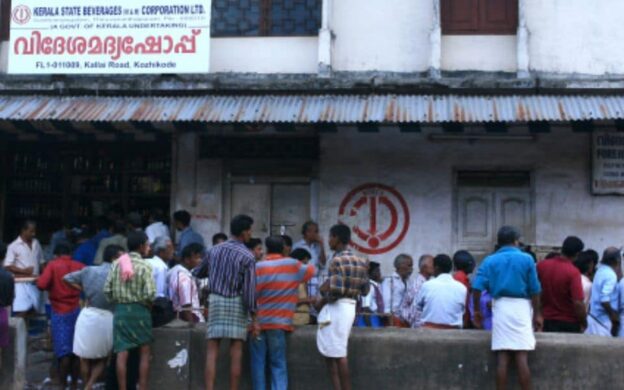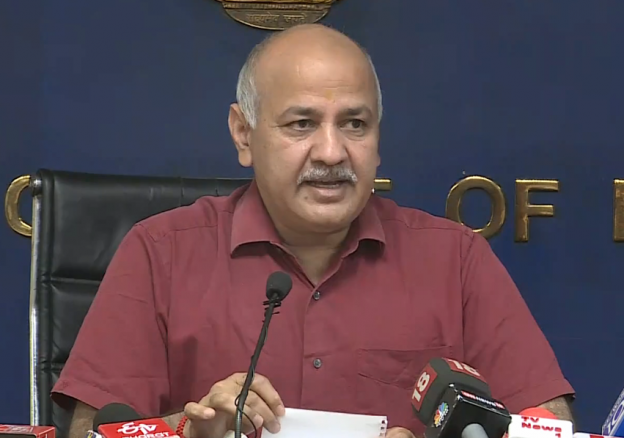The Kerala Government has approved setting up pubs and wine parlours in IT parks across the state. The State Cabinet which met recently announced a new liquor policy for the financial year 2022-23 which aims to increase the number of retail outlets in the state to bolster its exchequer. In the last five years, God’s Own Country received `46,546.13 crores through the taxation on liquor.
The government revealed to a RTI that it had collected Rs. 766 crores monthly as tax on liquor which meant that tipplers paid as much as Rs. 25.53 crore as tax on liquor. The highest revenue from the tax on liquor was collected during the period of 2018-19 and 2019-20. A total of Rs. 9,615.54 crore was collected in 2018-19 and Rs. 10,332.39 crore in 2019-20. There was dip in sales of liquor due to the pandemic in 2020-21. The Kerala State Beverages Corporation (BEVCO) posted a loss of Rs. 1,608.17 crore in revenue during 2020-21.
Hence, the government which was toying with the idea of opening up retail vends at different places has tweaked the policy. Now, BEVCO and Consumerfed outlets will be started in those areas which are safely away from populated and residential areas. The demand for allowing pubs in the IT sector has been a subject of debate for some time.
The IT sector in the state was demanding to change its policy on the matter. It is learned that the pubs will have facilities of five-star luxury hotel. The Pinarayi Vijayan government tweaked the liquor policy enabling the opening of more retail outlets and the biggest gainer appears to be the IT parks in Kerala, where special earmarked areas will be provided where IT buffs can have a drink.
Incidentally, the liquor policy of the Kerala government is an annual ritual, when the rules are made for the new fiscal and become applicable from April 1 every year.
The biggest gainer appeared to be the three IT parks in the state, where over one lakh professionals are employed at Technopark, Kochi Infopark and the Kozhikode IT park.
The State Excise Minister MV Govindan pointed out that there has been a long-standing demand from IT professionals for a lack of facilities for recreation. “It has been decided to allow sanction for special licenses to these parks where specially marked areas will be there in the park and facilities will be available for consumption of liquor under strict norms,” said a statement from the Minister.
The government also is giving permission to produce liquor with low alcoholic content or wine from the cashew apple, pineapple, jackfruit and nutmeg. Similar to what Delhi did, Kerala intends to allow buying of foreign liquor from the outlets without queues. The decision to increase the production of liquor in the existing units and launch new units has been taken to address the issues in the production of Indian-made foreign liquor and beer.
The government said that it was taking measures to escalate the production of Jawan rum of Travancore Sugars and start manufacturing at the Malabar distillery.
Highlights of the policy:
• No hike in brand registration fees for liquor selling in cans and glass bottles
• The government proposes to ban sale of liquor in plastic bottles from 2023-24
• The closed outlets will be reopened as premium shops to reduce the rush in existing outlets
• Grant of bar licenses will be only to three-star hotels and above
• Kerala Toddy Industry Development Board will be revived and soon licenses will be issued to operate toddy shops from 2022-23
• Track and trace systems will be introduced for production of liquor and inter-district/intra-range transport
• Beverages corporation will launch liquor-related industries in the state
• All services provided by the Excise department will be made available online from April 1
• Computerisation of foreign liquor outlets
• More vehicles and 100 pistols will be delivered to the excise circle offices of eight taluks
• Mobile app titled ‘Peoples Eye’ to lodge complaints about the trade, stocking and consumption of illicit liquor
• Increase the posts of women civil excise officers
• Appoint 100 youth from scheduled tribes as civil excise officers




